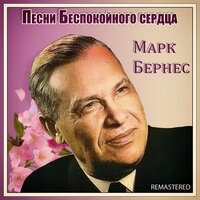| Прасковья (original) | Прасковья (translation) |
|---|---|
| Враги сожгли родную хату | Enemies burned their home |
| Враги сожгли родную хату, | Enemies burned their own hut, |
| Сгубили всю его семью. | They killed his entire family. |
| Куда ж теперь идти солдату, | Where should the soldier go now, |
| Кому нести печаль свою? | To whom to bear their sorrow? |
| Пошёл солдат в глубоком горе | A soldier went in deep sorrow |
| На перекрёсток двух дорог, | At the crossroads of two roads, |
| Нашёл солдат в широком поле | Found a soldier in a wide field |
| Травой заросший бугорок. | Grass overgrown hillock. |
| Стоит солдат — и словно комья | There is a soldier - and like clods |
| Застряли в горле у него. | Got stuck in his throat. |
| Сказал солдат: «Встречай, Прасковья, | The soldier said: "Meet, Praskovya, |
| Героя-мужа своего. | Hero-husband. |
| Готовь для гостя угощенье, | Prepare a meal for the guest |
| Накрой в избе широкий стол, — | Lay a wide table in the hut, - |
| Свой день, свой праздник возвращенья | Your day, your holiday of return |
| К тебе я праздновать пришел…» | I came to you to celebrate ... " |
| Никто солдату не ответил, | Nobody answered the soldier |
| Никто его не повстречал, | Nobody met him |
| И только тёплый летний ветер | And only a warm summer wind |
| Траву могильную качал. | I shook the grave grass. |
| Вздохнул солдат, ремень поправил, | The soldier sighed, adjusted the belt, |
| Раскрыл мешок походный свой, | He opened his travel bag, |
| Бутылку горькую поставил | I put a bitter bottle |
| На серый камень гробовой. | On the gray gravestone. |
| «Не осуждай меня, Прасковья, | "Don't judge me, Praskovya, |
| Что я пришёл к тебе такой: | That I came to you like this: |
| Хотел я выпить за здоровье, | I wanted to drink to health |
| А должен пить за упокой. | And I must drink for peace. |
| Сойдутся вновь друзья, подружки, | Friends will meet again, girlfriends, |
| Но не сойтись вовеки нам…» | But we will not converge forever ... " |
| И пил солдат из медной кружки | And the soldier drank from a copper mug |
| Вино с печалью пополам. | Wine with sadness in half. |
| Он пил — солдат, слуга народа, | He drank - a soldier, a servant of the people, |
| И с болью в сердце говорил: | And with pain in his heart he said: |
| «Я шёл к тебе четыре года, | “I went to you for four years, |
| Я три державы покорил…» | I conquered three powers ... " |
| Хмелел солдат, слеза катилась, | The soldier was tipsy, a tear rolled down, |
| Слеза несбывшихся надежд, | Tears of unfulfilled hopes |
| И на груди его светилась | And on his chest shone |
| Медаль за город Будапешт. | Medal for the city of Budapest. |
Translation of the song lyrics Прасковья - Марк Бернес

Song information On this page you can read the lyrics of the song Прасковья , by -Марк Бернес
Song from the album: Песни беспокойного сердца
In the genre:Русская эстрада
Release date:10.11.2019
Song language:Russian language
Record label:Chemodanov
Select which language to translate into:
Write what you think about the lyrics!
Other songs by the artist:
| Name | Year |
|---|---|
| 2020 | |
| 2019 | |
| 2013 | |
| 2013 | |
| 2015 | |
| 2015 | |
| 2013 | |
| 2012 | |
| 2003 | |
| 2019 | |
| 2020 | |
| 2019 | |
| 2015 | |
| 2016 | |
| 2020 | |
| 2004 | |
| 2015 | |
| 2012 | |
| 2019 | |